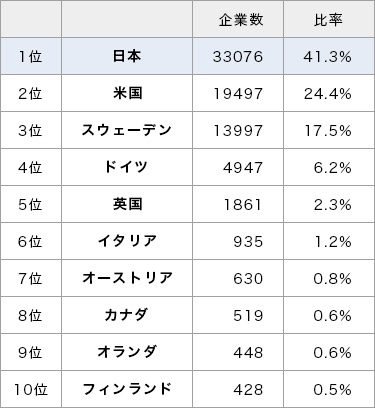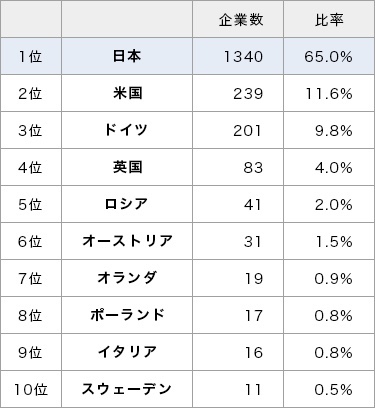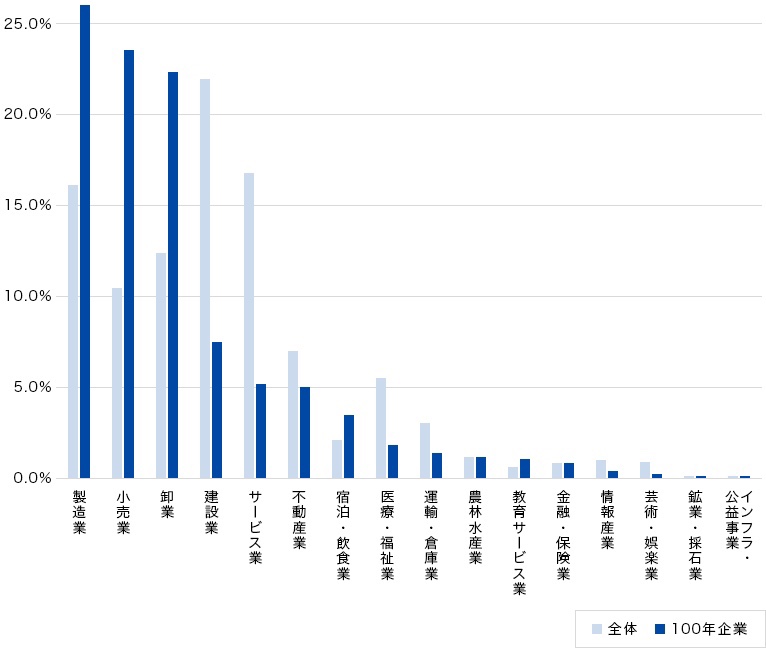Long-lived companies: Why are there so few in China and South Korea?
-Why is the number of long-lived companies in Japan so prominent? ー
WEB Astion:
The three East Asian countries of Japan, China, and South Korea share common cultural foundations and customs, such as Confucianism and Buddhism.
“However, why there are so many long-lived companies only in Japan” was analyzed.
Japanese longevity companies:
The world is facing serious crises such as “outbreak of new corona, Russian invasion of Ukraine”.
Many long-lived companies in Japan are now in the spotlight.
Long-lived Japanese companies are attracting attention for their “business succession, human resource development, brand value, and social business.”
Crisis resistance:
The point that attracts particular attention is that it has overcome various crises over a long period of time.
It is important to have the ability to respond to crises unique to a long-lived company, and the way of sustainable management.
A long-lived company with over 100 years of history has overcome many crises and hardships.

Figure 1 Number and ratio of companies over 100 years old
Situation in China and South Korea:
There are few “long-lived companies” in China and South Korea. I always have one question.
Japan has the world’s largest number of long-lived companies, most of which are family businesses. In China and South Korea, the number is small.

Fig. 2 Number and ratio of companies with over 200 years of history
Commonalities between Japan, China and Korea:
Japan, China and South Korea share common cultural foundations such as Confucianism and Buddhism. Socially, there are also many commonalities in perceptions and practices.
However, there are many “similarities but dissimilarities” in terms of perceptions and ways of thinking about corporate management.
Family Enterprises and Business Succession in East Asia: Commonalities and Diversity
Case studies of 8 Japanese companies (2), mainland Chinese (2), Taiwanese (1), Hong Kong (1), and South Korean (2) from the three perspectives of corporate management, family management, and property management. were picked up and compared internationally.

Fig. 3 Ratio of companies over 100 years old by industry (Japan)
Japanese longevity companies:
Research on long-lived companies considers the relationship between “tradition” and “innovation.”
Many long-lived companies belong to “traditional industries,” and they value “tradition.”
Owners of long-lived companies:
I often hear the following explanation about “tradition”. “Tradition is a continuation of innovation”
“Tradition for long-lived companies” is not conservative. Rather, “tradition is to keep innovating.”
Green tea drink “Iemon”:
Iyemon, which is familiar in commercials, is a brand of Fukujuen founded in Kyoto in 1790.
For generations, the head of the family adhered to the family motto (people gather where people are virtuous), and developed product quality, sales methods, and market development.
The current chairman, Masanori Fukui, has a favorite saying, “Tradition is a continuation of innovation.”
“Hori gold leaf powder” of gold leaf:
Horikinpaku is a long-running company founded in 1711.
Manufactures “gold leaf used in Kinkakuji”. In 1985, he developed an edible gold leaf maiko stamp.
In 2000, “Horikinpaku powder” succeeded in producing “24K gold leaf”.
Currently, we are working on new products such as lotion with gold leaf and gold leaf tattoo.
A vibrant business and policy:
In this way, “independence” and “autonomy” were preserved.
A company will have a long life if it is “always sought after by next-generation customers and contributes to the community.”
https://www.newsweekjapan.jp/asteion/2023/05/post-112.php
Ranking of the world’s longest-lived companies: Japan ranks first in terms of the number of companies with 100 or 200 years of history
https://consult.nikkeibp.co.jp/shunenjigyo-labo/survey_data/I1-03/